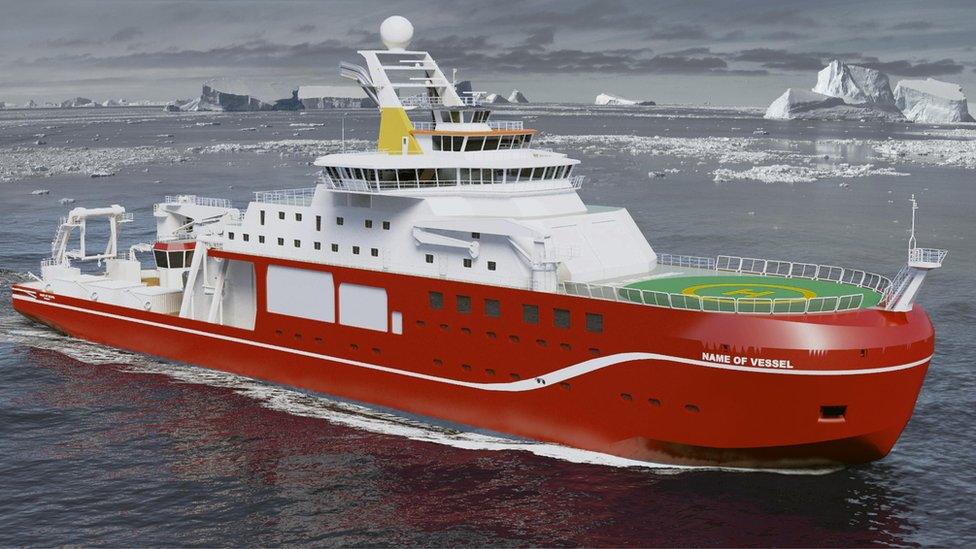Polar ship's Antarctic base gets £100m upgrade
- Published
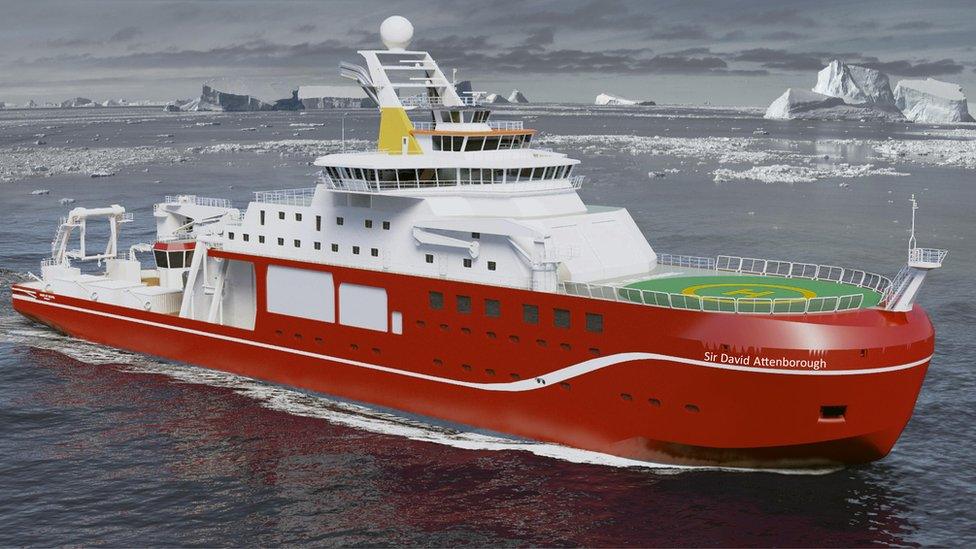
The £200m vessel, named after the naturalist and broadcaster David Attenborough, will be based at Rothera
The UK's largest Antarctic research station is to receive a £100m upgrade funded by the government.
Rothera Research Station will be home to the exploration ship RRS Sir David Attenborough. An online public vote had favoured the name Boaty McBoatface.
Cambridge-based British Antarctic Survey will use the money to build a new wharf, storage and living quarters.
Its director of operations Tim Stockings said it was "an exciting moment for polar science".
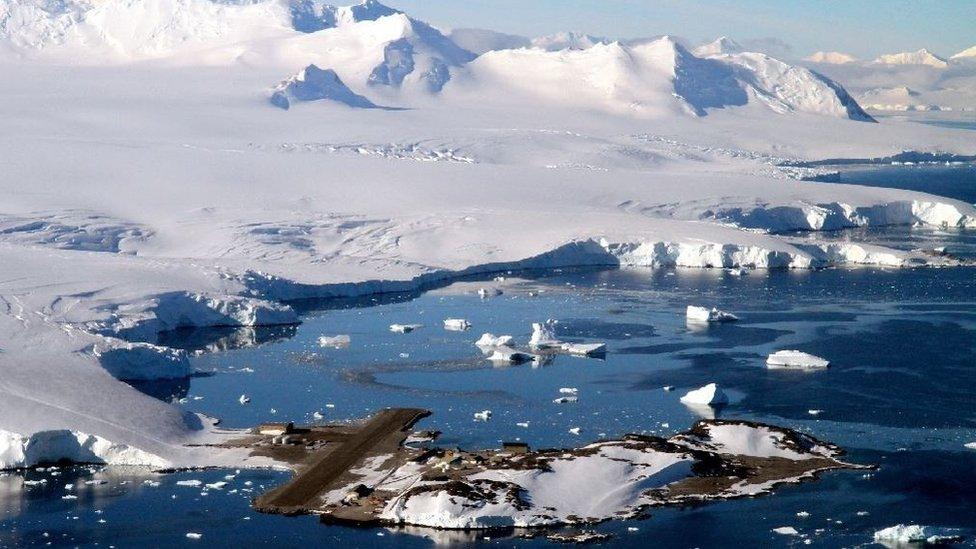
Rothera Research Station is on Adelaide Island, west of the Antarctic Peninsula, and 1,155 miles (1,860km) south of the Falkland Islands
Rothera is a centre for biological research and a hub for supporting deep-field and air operations.
It supports a range of British university and international science programmes, including the Dirck Gerritsz laboratory operated by the Netherlands.
The Department for Business and Science said the upgrade would allow teams to conduct more ambitious expeditions to untapped areas of the Antarctic and the Arctic.
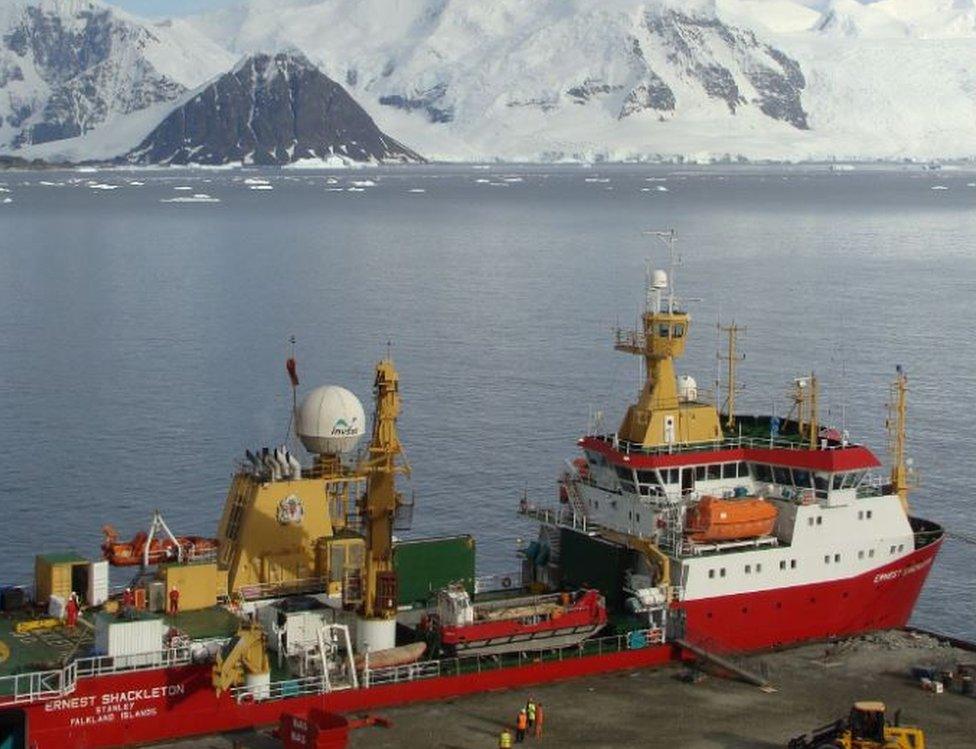
The station operates all year round, with its population peaking at about 100 during the summer
Science minister Jo Johnson said the investment would help ensure "our world-class research sector has the tools it needs to thrive on a global stage".
Construction company BAM has been appointed to build the facilities, which can only be done during the four month-long Antarctic summers.
The money will also fund the modernisation of buildings and facilities at British Antarctic Survey stations in Signy in the South Orkney Islands and at Bird Island and King Edward Point, both in South Georgia.
The whole project is expected to take between seven and 10 years.
- Published6 May 2016

- Published6 May 2016

- Published5 May 2016
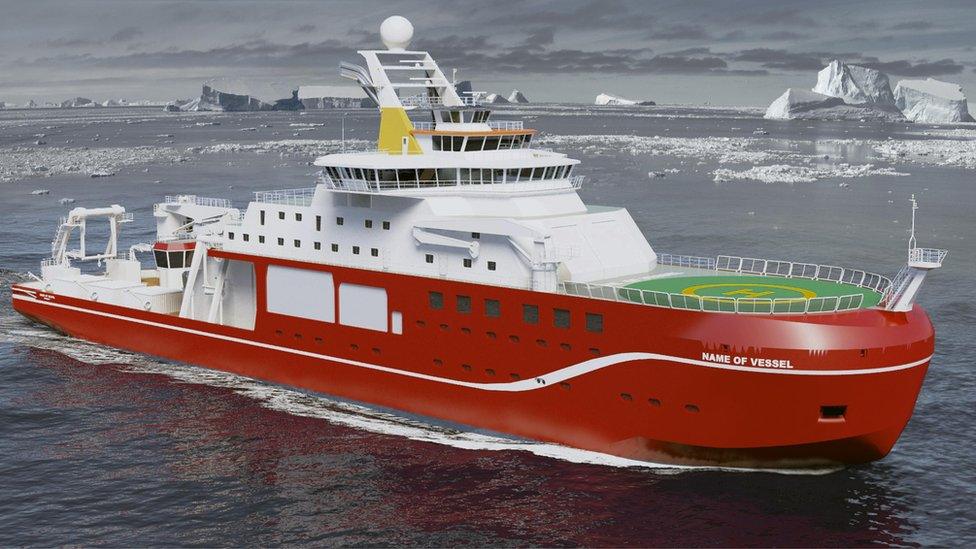
- Published21 March 2016
